Search Posts
Recent Posts
- Vinny Paz to be inducted TODAY into the International Boxing Hall of Fame – CES Boxing June 7, 2025
- In the News… quick recap of the week’s news (6.7.25) June 7, 2025
- Burn with Kearns: Strong without the spend: How scraps became strength tools – Kevin Kearns June 7, 2025
- Rhode Island Weather for June 7, 2025 – Jack Donnelly June 7, 2025
- How to advocate for threatened properties: The Heritage Alliance of Pawtucket June 7, 2025
Categories
Subscribe!
Thanks for subscribing! Please check your email for further instructions.
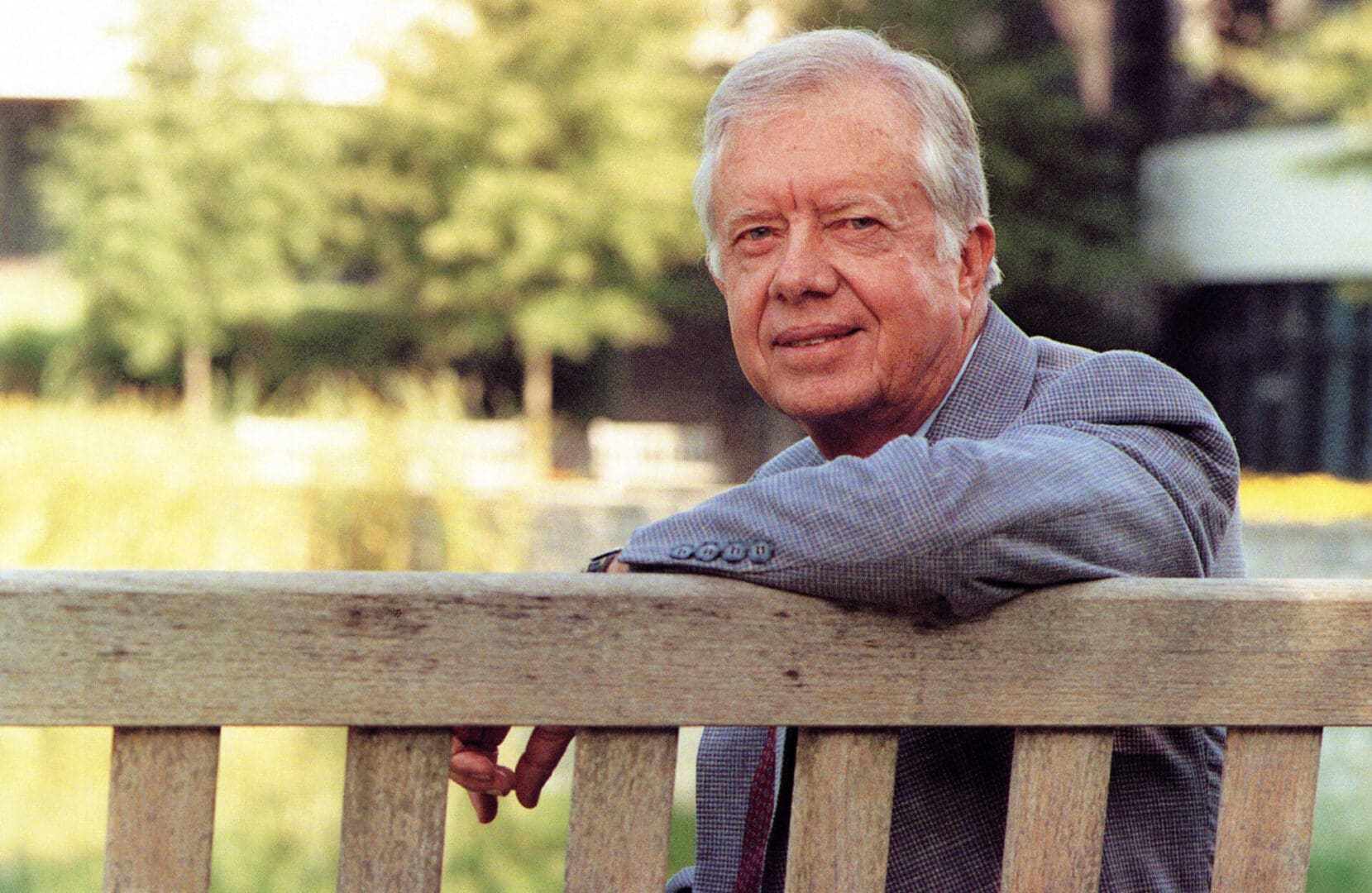
Jimmy Carter, 39th President of the US, dies at 100 – the president of human rights and peace
Carter stayed long enough to see his beloved Rosalynn through illness and death. He lived long enough to vote, Democratic, for President, said to be his wish. He hit the hallmark age of 100, having been in hospice for almost two years.
Jimmy Carter, 39th president of the United States and winner of the 2002 Nobel Peace Prize, died peacefully Sunday, Dec. 29, at his home in Plains, Georgia, surrounded by his family. At 100, he was the longest-lived president in U.S. history.
President Carter is survived by his children – Jack, Chip, Jeff, and Amy; 11 grandchildren; and 14 great-grandchildren. He was preceded in death by his beloved wife, Rosalynn, and one grandchild.
“My father was a hero, not only to me but to everyone who believes in peace, human rights, and unselfish love,” said Chip Carter, the former president’s son. “My brothers, sister, and I shared him with the rest of the world through these common beliefs. The world is our family because of the way he brought people together, and we thank you for honoring his memory by continuing to live these shared beliefs.”
There will be public observances in Atlanta and Washington, D.C., followed by a private interment in Plains, Georgia. The final arrangements for President Carter’s state funeral, including all public events and motorcade routes, are still pending. The schedule will be released by the Joint Task Force-National Capital Region at jtfncr.mdw.army.mil/statefunerals/.
___
Malaise Speech
In 1979, President Carter gave his famous “malaise” speech – listening to it today it is even more relevant to the politics and issues of the time. While planning to speak about the energy crisis, inflation, and recession, he chose to pivot to “listen” to a wide group of people for a 10-day period, and then re-write his speech. Termed the “malaise” speech, he said the threat to democracy was a “crisis of confidence” and a loss of “unity of purpose” in the future of the country.
He talked about ending dependence on foreign oil by use on American resources and foreign oil quotas. The development of alternative energy sources, solar bank, energy bonds. US must win the energy war. Utility companies should switch to coal by 50%. Refineries or pipelines prioritized over environment when necessary. Energy conservation for homes. Standby rationing.
Public transportation systems must be strengthened – don’t take unnecessary trips. Use systems, travel together, put one’s thermostat down – it was appealed as an act of patriotism.
In summary he put much on the American people – saying progress could not happen without self-sacrifice, confidence and a renewed spirit of patriotism.
He turned the threat of outward things – to inward things – our own attitudes and demeanor. While we may not have liked the tough medicine, and Carter paid a re-election price for it, in hindsight, the message was powerful – take a moment:
Official Biography
Jimmy Carter was a man of high principle, steadfast integrity, and deep religious faith who dedicated his life to public service. As private citizen and public official he pursued the causes of human rights, peace, and care for the least fortunate with passionate determination and boundless energy.
Throughout his life, he repeatedly placed what he believed to be right above personal and political considerations. His quiet voice and ready smile masked a bulldog determination and an aversion to compromise on matters of principle.
In his 1977 inaugural address, President Carter quoted the prophet, Micah: “What doth the Lord require of thee, but to do justly, and to love mercy, and to walk humbly with thy God?” For many who knew and worked with him, those words aptly summarize his life of faith and service.
Jimmy Carter grew up on a farm near the small town of Plains in southwest Georgia and graduated from the United States Naval Academy. As an officer serving in the Navy’s elite nuclear submarine program, he planned a career in the military. Those plans were cut short by his father’s death when, inspired by the many tributes to his father’s contributions to individuals and the community, he decided to return home. After a few difficult years, the family farm and business prospered, and his interests turned again to public service.
He won election as a Georgia state senator in 1962 and 1964 and as governor in 1970. As was to be the case in his presidency, Jimmy Carter’s service in those two offices was marked by the determination to engage difficult and controversial issues–including racial discrimination and government waste–and do what he felt was right regardless of political consequences.
Jimmy Carter rose from virtual political obscurity in 1976 to win election as the 39th president of the United States. He led an extremely active administration, taking on a weighty accumulation of controversial problems and issues, and initiating reforms that continue to benefit the nation and the world.
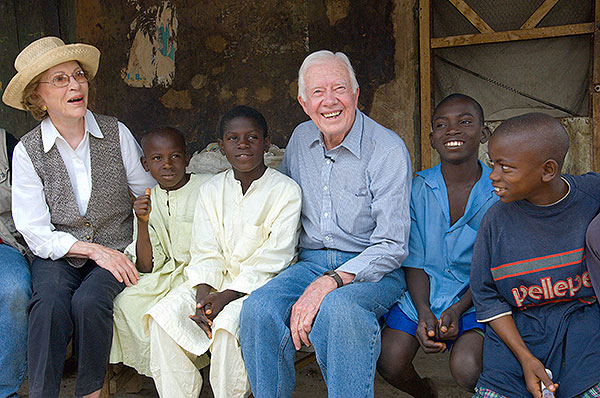
As a former president, he was equally dedicated to public service in his work through The Carter Center, which he founded with his wife, Rosalynn. He was widely acclaimed for his relentless campaigning for human rights, mediating conflicts around the world, and fighting debilitating diseases in developing countries.
In 2002, he was awarded the Nobel Peace Prize for his humanitarian efforts and for his commitment from the time of his presidency to “the principles that conflicts must as far as possible be resolved through mediation and international co-operation based on international law, respect for human rights, and economic development.”
In a 2013 Washington Post interview, he was asked how he wanted to be remembered. His response: “As a champion of human rights. Human rights are more than just freedom of speech, the right to elect one’s own leaders, and freedom of assembly. They also include the right to a home, access to adequate health care, and to live in peace. That is how I want to be remembered, for human rights and peace.”
President and Mrs. Carter married in 1946 and had four children. The Carters often described their relationship as a full partnership in which they were each other’s best friend. He was a devoted father, grandfather, and great-grandfather.
Jimmy Carter was a deeply religious man, a Baptist lay leader, teaching Sunday school most of his adult life while at the same time adamantly adhering to the separation of church and state. For three decades, he and Mrs. Carter spent one week a year helping build housing for the poor through Habitat for Humanity. He was the author of 32 books. He also was a skilled woodworker, accomplished painter, and an active outdoorsman, enjoying fishing, hunting, and birding throughout his life.
Observers found Jimmy Carter to be resolute and implacable when faced with challenges, which he met with perseverance and pragmatism supported by his bedrock religious faith. He was relentlessly energetic, seemingly perpetually in motion, and his attention to even the tiniest program or policy detail was legendary. His calls for human rights, relief for the sick and oppressed, and religious tolerance were imbued with a sense of higher moral purpose and were favorably and admiringly received throughout the world, even by many of those who did not look kindly on his White House years.
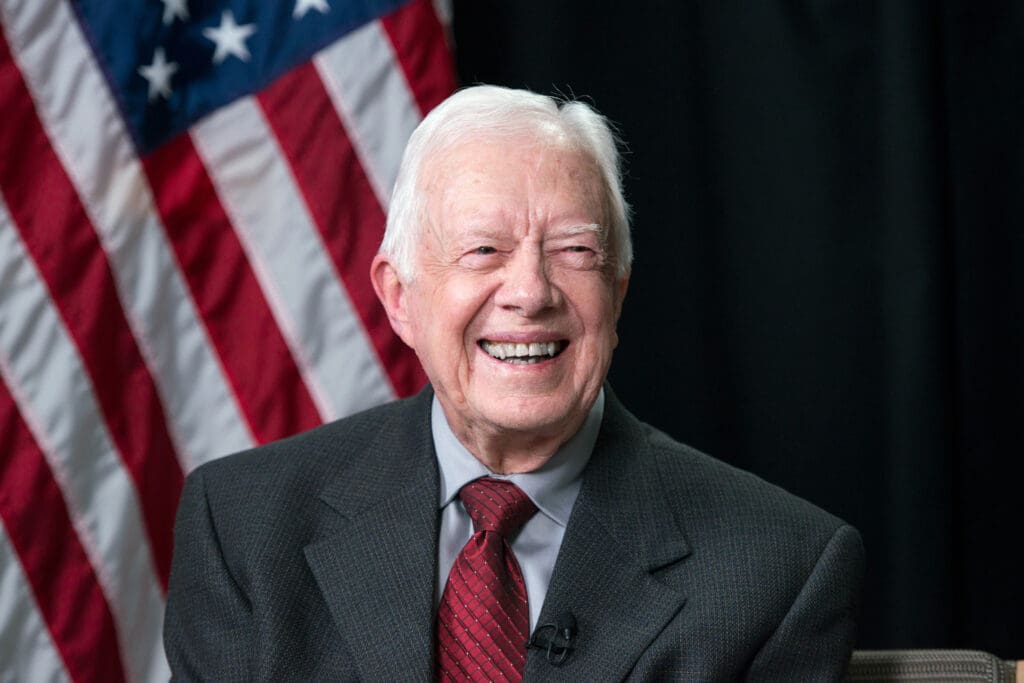
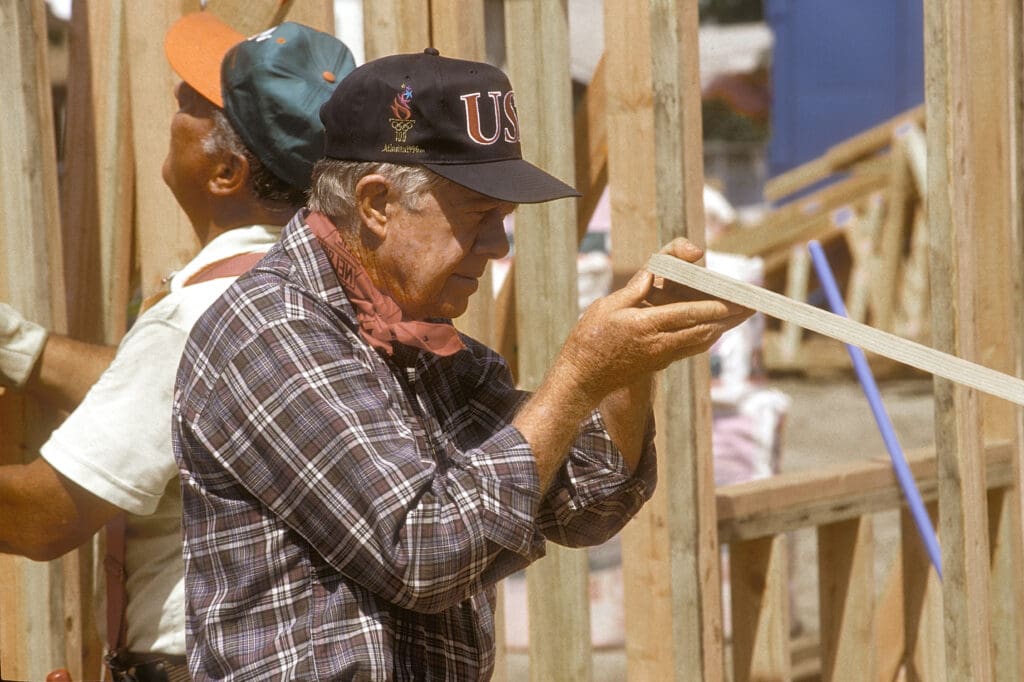
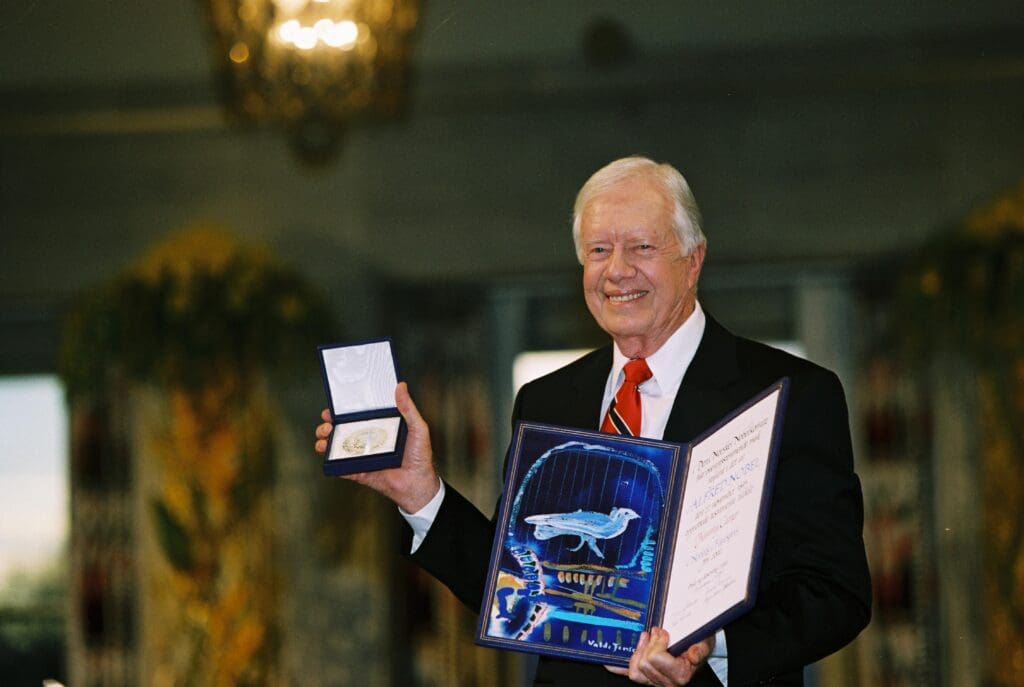
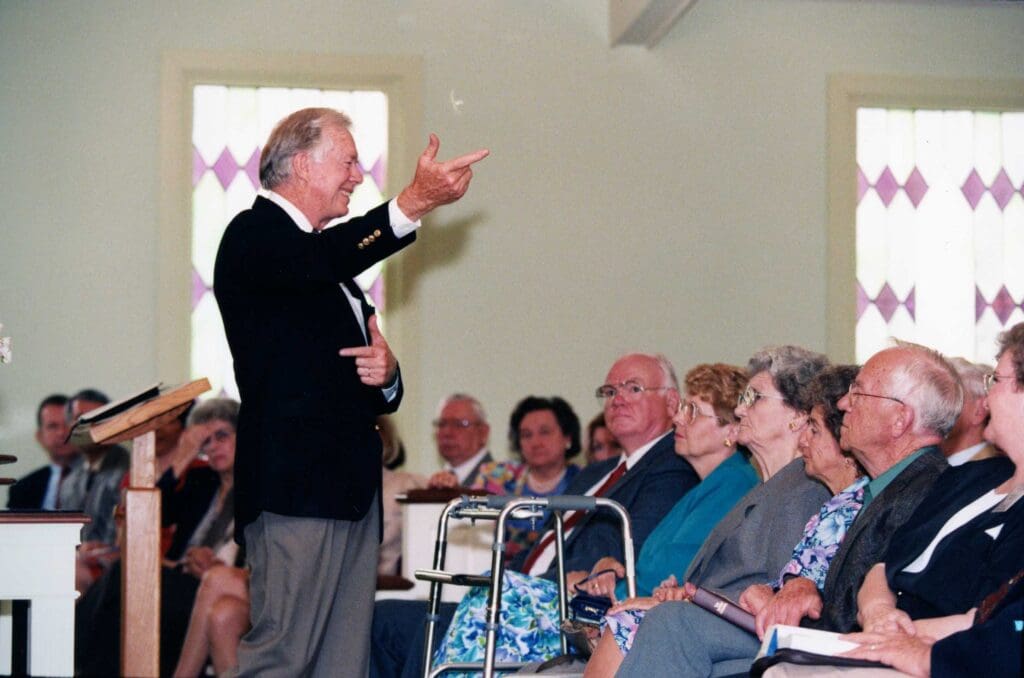
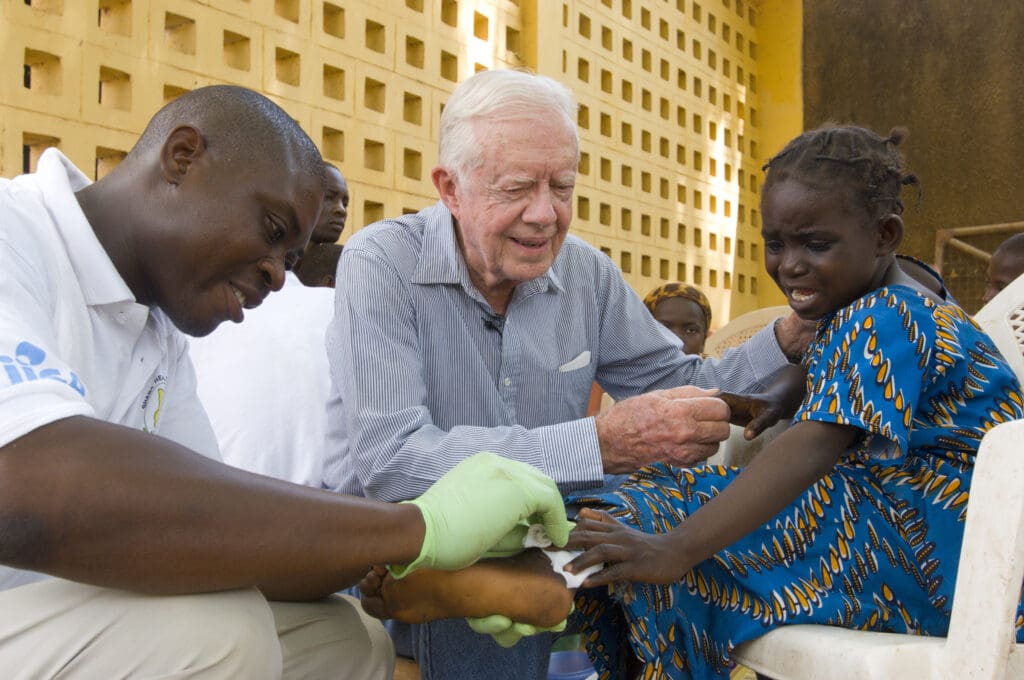
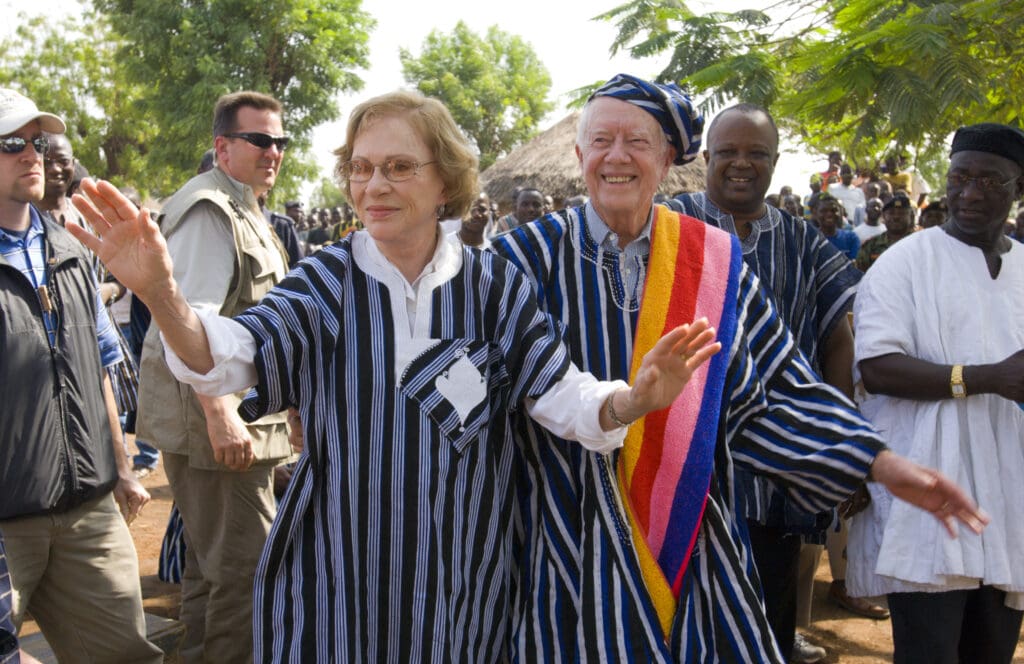
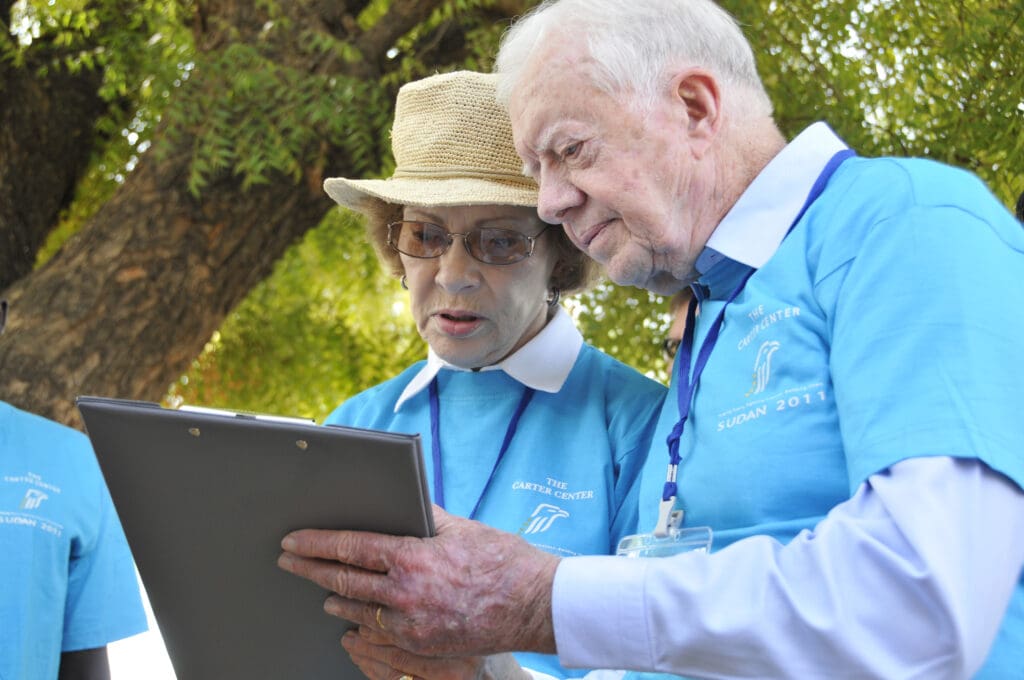
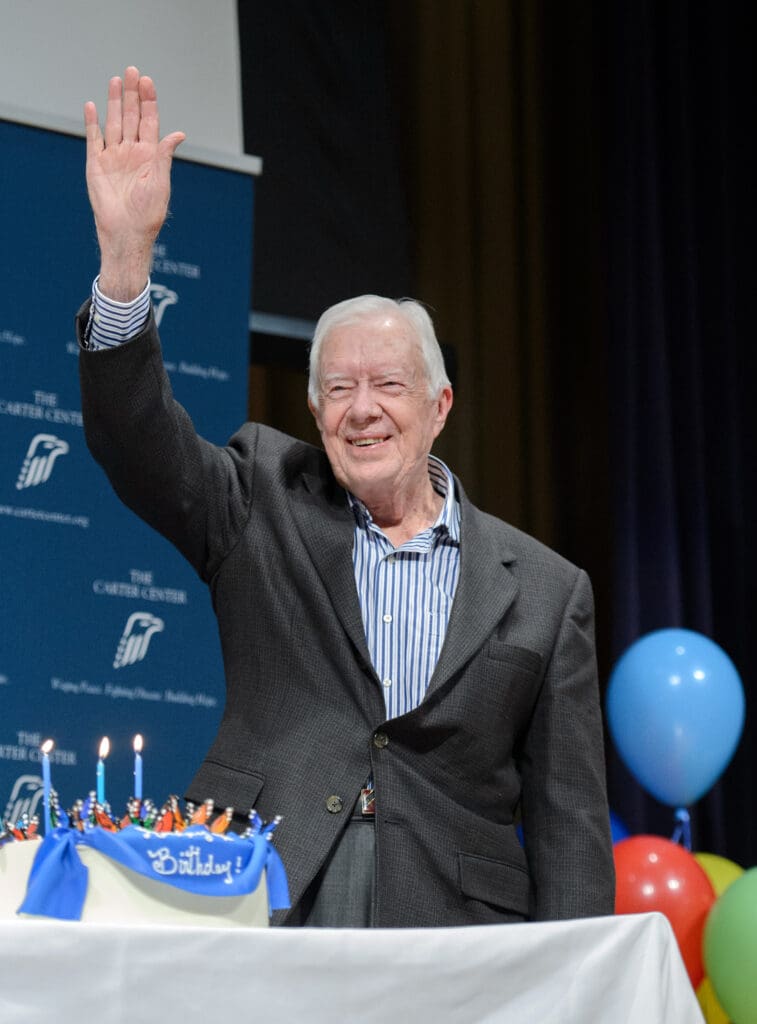
Carter’s work in irradicating guinea worms for children in Africa, and is most remembered, contemporarily, building homes with Habitat for Humanity, and teaching Sunday school at his church, something he did well into his 90s.
Carter was the only President to return home, to his small town in Georgia, to take over the family peanut farm, and to live in the very modest home he came from, for the rest of his life.
Much more on the life of Jimmy Carter can be found HERE – and HERE.

James Earl Carter Jr.
1924-2024
39th President of the United States
Today we were all saddened with the loss of one of our most beloved Presidents of recent time, PRESIDENT JIMMY CARTER.
For many of us that were embarking upon a whole new journey in our young lives, President Carter was a demonstrative mentor of dedication, success, modesty, hard work and the inspiration that got him elected during the Bi-Centennial of 1976 of these United States.
His character of moral code and charitable actions during and after his political career, was an extraordinary model for all Americans – and folks of all stripes – to emulate and provide for their families, friends and neighbors in their everyday lives, is something we can cherish.
That’s just part of the legacy that President JIMMY Carter has left us and can share such a down-to-earth legacy for years to come.
GOD BLESSINGS of the Risen Savior Upon Jimmy & Rosalynn Carter and Family.
In Sincerest Thought of Peace, Collaboration and Unity, I am,
I wish Jimmy Carter had shown the consciousness DURING his Presidency that he showed as a retired President. The actions of the President Jimmy Carter stand in pretty strong contradiction to the retired president. Was he doing penance?
Here: from the clear-eyed, no compromise writing of Chris Hedges: “Jimmy Carter, out of office, had the courage to call out the “abominable oppression and persecution” and “strict segregation” of Palestinians in the West Bank and Gaza in his 2006 book “Palestine: Peace Not Apartheid.” He dedicated himself to monitoring elections, including his controversial defense of the 2006 election of Hugo Chavez in Venezuela, and championed human rights around the globe. He lambasted the American political process as an “oligarchy” in which “unlimited political bribery” created “a complete subversion of our political system as a payoff to major contributors.”
But Carter’s years as an ex-president should not mask his dogged service to the empire, penchant for fomenting disastrous proxy wars, betrayal of the Palestinians, embrace of punishing neoliberal policies and his subservience to big business when he was in office.
Carter played a significant role in dismantling New Deal legislation with the deregulation of major industries including airlines, banking, trucking, telecommunications, natural gas and railways. He appointed Paul Volcker to the Federal Reserve, who, in an effort to combat inflation, drove up interest rates and pushed the U.S. into the deepest recession since the Great Depression, a move that saw the start of punishing austerity cuts. Carter is the godfather of the pillage known as neoliberalism, a pillage fellow Democrat Bill Clinton would turbo charge.
Carter fell under the disastrous influence of his Svengali-like national security adviser Zbigniew Brzezinski, a Polish exile, who rejected the Nixon-Kissinger reliance on détente with the Soviet Union. Brzezinski’s life’s mission, one that meant he saw the world in black and white, was to confront and destroy the Soviet Union along with any government or movement he deemed to be under communist influence or sympathetic to it.
Carter, under Brzezinski’s influence, walked away from the Strategic Arms Limitation Talks treaty (SALT II) with the Soviet Union, which sought to curb nuclear weapons deployment. He increased military spending. He sent military aid to the Indonesian New Order government during the Indonesian invasion and occupation of East Timor, which many have characterized as a genocide. He supported, along with the apartheid state of South Africa, the murderous counter revolutionary group, the National Union for the Total Independence of Angola (UNITA), led by Jonas Savimbi. He provided aid to the brutal Zairian dictator Mobutu Sese Seko. He supported the Khmer Rouge.
He instructed the Central Intelligence Agency to back opposition groups and political parties to bring down the Sandinista government in Nicaragua once it took power in 1979, leading under the Reagan administration to the formation of the Contras and a bloody and senseless U.S.-backed insurgency. He provided military aid to the dictatorship in El Salvador, ignoring an appeal from Archbishop Oscar Romero — later assassinated — to cease U.S. arms shipments.
He poisoned U.S. relations with Iran by backing the repressive regime of Shah Mohammad Reza Pahlavi until the last minute and then allowing the deposed Shah to seek medical treatment in New York, triggering the occupation of the U.S. Embassy in Tehran and a 444-day hostage crisis. Carter’s belligerence — he froze Iranian assets, stopped importing oil from Iran and expelled 183 Iranian diplomats from the U.S. — played into Ayatollah Khomeini’s demonization of the U.S. and calls for Islamic rule. He obliterated the credibility of Iran’s secular opposition.
Carter gave Philippine President Ferdinand Marcos, although he ruled under martial law, billions in military aid. He armed the Mujahideen in Afghanistan after the Soviet intervention in 1979, a decision that cost the U.S. $3 billion, saw the deaths of 1.5 million Afghans and led to the creation of the Taliban and Al Qaeda. The blowback from this Carter policy alone is catastrophic.
He backed the South Korean military in 1980 when it laid siege to the city of Gwangju, where protestors had formed a militia, which led to the massacre of some 2,000 people.
Finally, he sold out the Palestinians when he negotiated a separate peace deal, known as the Camp David Accords, in 1979 between Egyptian President Anwar Sadat and Israeli Prime Minister Menachem Begin. The agreement excluded the Palestine Liberation Organization from the talks. Israel never, as promised to Carter, attempted to resolve the Palestine question with Jordan and Egypt’s involvement. It never permitted Palestinian self-government in the West Bank and Gaza within five years. It did not end Israeli settlements — a refusal that led Carter to later claim Begin had lied to him. But since there was no mechanism in the agreement for enforcement, and since Carter was unwilling to defy the Israel lobby to impose sanctions on Israel, the Palestinians found themselves, once again, powerless and abandoned.”
I praise the witness of retired President Jimmy Carter. But his time in power demonstrates, if nothing else, the savage power of corporate neoliberalism and the momentum of the State.